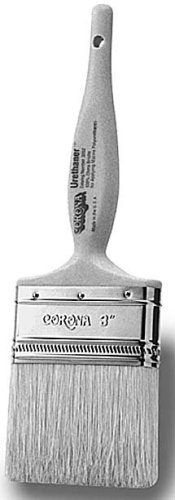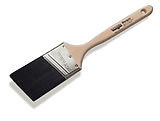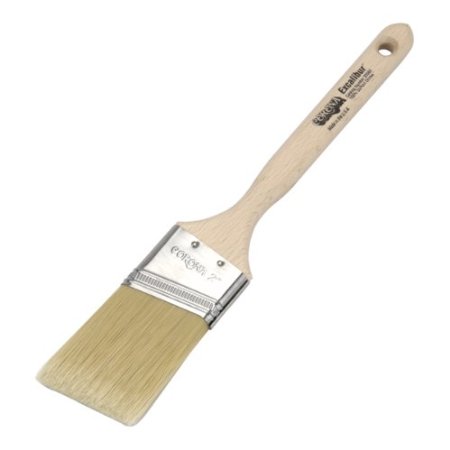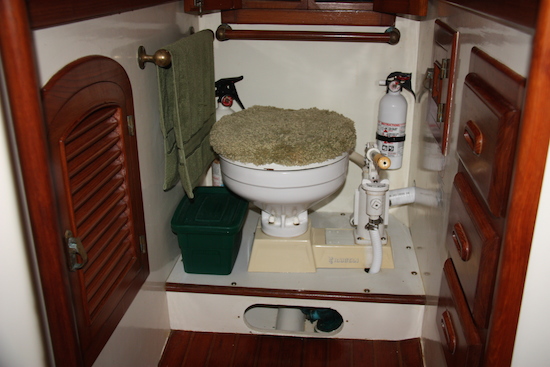Which brush to use for varnish used to be a no brainer — it had to be badger-hair … period. But apparently badgers are becoming less plentiful and real badger hair brushes are more and more difficult to find. And if you do find them, oft times, they cost more than the varnish! Yikes!
In the meantime, is there ANYTHING worse than bristles falling out and sticking in your perfect wet varnish? Ugh! Here’s what I think …

Onyx White China Bristle brushes are well constructed and although I haven’t used one yet, people that do seem to be satisfied.
The cheapo foam brushes are good for between maintenance coats touch ups, but we noticed this time that the finish isn’t quite as smooth, and hence not as glossy as a “real” brush. I’ll still use them to touch up nicks. Cheap and disposable – never try to clean one, mine disintegrated in turpentine.
Our “Varnish Artist” friend has switched to using Corona Urethaner brushes. I couldn’t find the Urethaner locally, so I tried the Ace Hardware most expensive Corona brush, a Corona Marquis. I use 2″ and prefer the angle brush.

The brush performed admirably through the first coat of varnish, no loose bristles and it held the varnish very well, no drips and no brush marks in the finish. The second coat was not quite so good – maybe 3 bristles took a vacation from the brush — always ANNOYING! But other than that, it still performed well.
Next time I might order a Corona Urethaner brush – they’re at West Marine or Amazon.
But if I get in a hurry and don’t have time to order a brush, I’ll just buy two of the Ace Hardware Corona Marquis Pro brushes – and use a new one for each coat. It’ll only be slightly more expensive than ordering one of the better Urethaner brushes and I won’t have to clean a brush overnight! 🙂
What brush do you use? Please leave a comment and share! Cheers! Jan














Jan, do you know about “de-hairing” a new brush before use? Basically you thump the brush firmly (but not too hard – it shouldn’t hurt!) against your hand at the collar (the metal part) so that the bristles”flex” firmly then spring back. Rotate the brush as you continue this thumping motion so that it’s flexed in all directions, then look at the bristles. Any hairs that were marginal, or even loose, will have worked their way out, or at least will now stick out a bit, where you can pull them out. Those that are in good shape won’t be budged by this maneuver.
This can be done each time you use a brush if it’s clean and dry, and should be done for a new brush before use. (BTW, I used to work at an Ace Hardware – that’s where I was taught this trick, by a guy who’d painted for 30 years before he retired to Ace!)
Hope it works for you.
Hi Keith! Thanks! Actually I do this when I first start using a brush, but after it’s been steeping in turpentine all night, not so much. But I do “brush it dry” so theoretically any loose bristles should take their leave. But sometimes it doesn’t always work like that. 🙂 Cheers! J